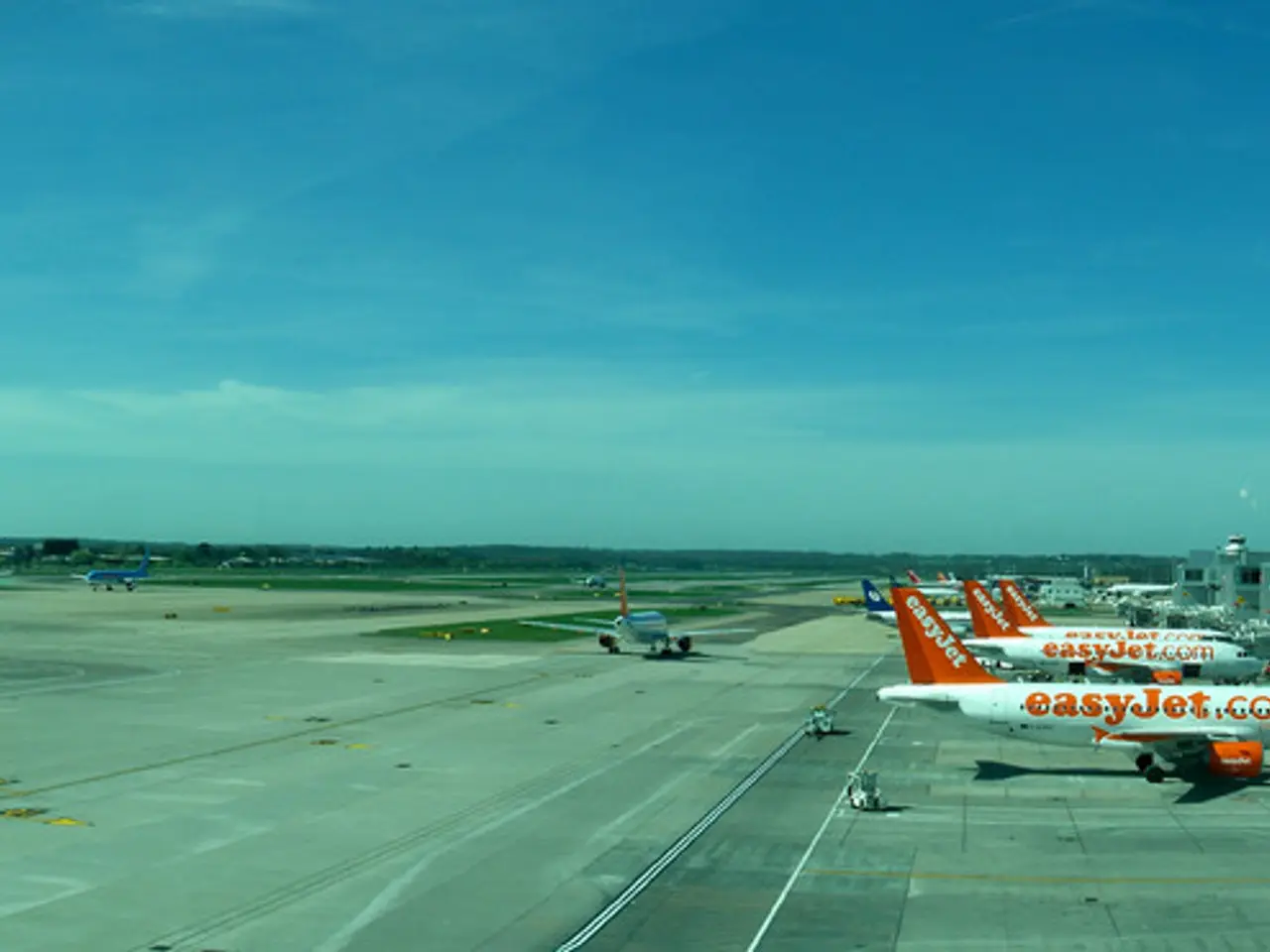Overlook of Air Traffic Tax Exclusion in the Preliminary 2026 Budget Plan - Grants for airport restructuring were provided as a public financial assistance by the Commission.
In a surprising turn of events, the 2026 budget draft has overlooked the reduction of the air traffic tax, a move that was strongly advocated for by the coalition agreement and the tourism sector. The decision to postpone the tax reduction comes amidst tight fiscal constraints and competing budget priorities.
The air traffic tax, initially introduced in 2011, was increased in May 2024 with the aim of reducing the number of flights and emissions. However, the increase has been met with resistance from various quarters, including the tourism industry and Christoph Ploß, the coordinator of the federal government for tourism. Ploß has emphasized the need to reverse the increase, citing the financial burden it places on airlines and travelers.
In the coalition agreement, the Union and SPD had agreed to reduce "air traffic-specific taxes, fees, and charges". This agreement was aimed at making flying cheaper and preserving flight routes. Despite this, the draft budget still projects air traffic tax revenues of about €2.07 billion in 2026, up slightly from 2025.
The government, including Ploß, supports the idea of canceling the increase and reducing airport charges. However, the draft budget reflects the current lack of fiscal room for immediate tax cuts. To finance a rollback, funds would need to come from transport or economic affairs budgets, which currently lack capacity for such adjustments.
The president of the tourism economics association, Soeren Hartmann, has demanded that the reduction in air traffic tax should not be a victim of budget cuts. Hartmann has also pointed out that not only airports, airlines, and the tourism value chain are affected by the imbalance, but also many private and business travelers. He mentioned that the fee and tax burden in Germany is above average compared to Europe.
Airlines and travelers welcome the intended future relief, but they are left waiting for the tax reduction to be prioritized in future budget considerations. The current situation has resulted in airlines removing aircraft from Germany, and the number of connections is decreasing.
In summary, the coalition agreement and tourism sector advocated for reversing the 2024 tax hike to make flying cheaper and preserve flight routes. The government plans to discuss the reduction as part of future budget considerations but did not prioritize it in the 2026 draft due to budget constraints and the expected revenue losses such a rollback would cause. For airlines and travelers, the wait continues for the much-needed tax relief.
- The government, in line with the coalition agreement, supports the reduction of air traffic-specific taxes, fees, and charges in order to make flying cheaper and preserve flight routes.
- To address the financial burden placed on airlines and travelers by the air traffic tax, vocational training in the field of environmental-science could be funding priority, as it could help devise more sustainable and cost-effective travel solutions.
- In addition to the tourism sector, the finance, business, and lifestyle industries may also be impacted by the continued high air traffic tax, as increased costs can influence overall business expenses and consumer spending patterns.




